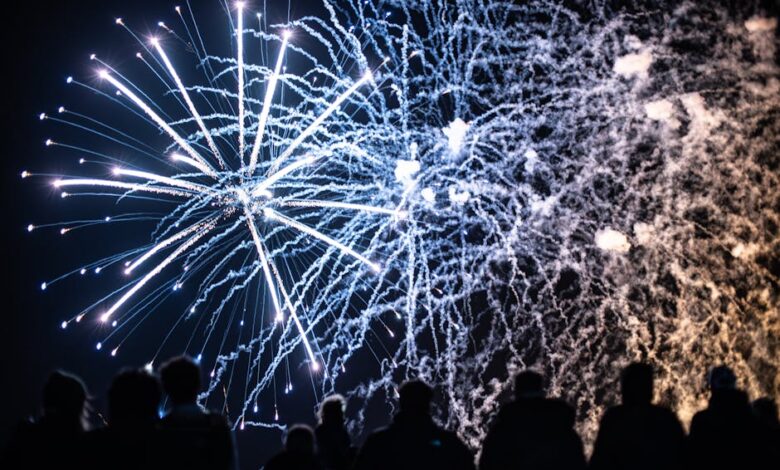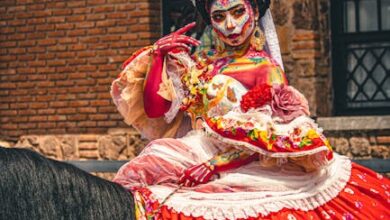The Genesis of a New Frontier: AI’s Inevitable March to Tinseltown

Remember that buzzword “synergy” that used to get tossed around in boardrooms like confetti? Well, buckle up, because a new kind of synergy, one far more potent and potentially industry-redefining, is brewing. This isn’t just about two companies playing nice; it’s about the convergence of cutting-edge artificial intelligence and the notoriously traditional world of Hollywood storytelling. And at the heart of this storm, making waves with a fresh $12 million in funding, is a venture called Wonder Studios. What makes this particular studio a lightning rod for attention? It’s not just the significant cash injection, but the names behind it: former heavy-hitters from AI powerhouses OpenAI and DeepMind.
For those of us who’ve watched the digital transformation ripple through virtually every industry, the entertainment sector has often felt like a grand old dame, slow to adopt, yet utterly dependent on innovation. But with generative AI models now capable of crafting everything from plausible dialogue to intricate visuals, the question was never *if* AI would disrupt Hollywood, but *when* and *how*. Wonder Studios isn’t waiting for the storm; they’re sailing right into it, aiming to be a pioneer in a new era of AI-driven content creation. And with the backing of people who literally helped build the AI revolution, their mission feels less like a speculative gamble and more like an inevitable evolution.
The Genesis of a New Frontier: AI’s Inevitable March to Tinseltown
Let’s be honest, Hollywood has always been about magic. From the earliest silent films to today’s CGI blockbusters, the industry thrives on pushing the boundaries of what’s possible, captivating audiences with stories and visuals that defy reality. Yet, behind the glamour, it’s also a business plagued by high costs, lengthy production cycles, and the perennial challenge of consistently delivering hits in a fickle market. Enter AI, a technology that promises efficiency, scale, and perhaps, even new forms of creativity.
The involvement of former OpenAI and DeepMind executives isn’t just a fancy press release bullet point; it’s a profound statement of intent. These aren’t just venture capitalists looking for a quick flip; these are individuals who have been at the very forefront of developing the foundational AI technologies that are now transforming our world. Their faith in Wonder Studios speaks volumes about the perceived readiness of AI to move beyond text and image generation, and into the complex, multi-layered realm of narrative storytelling and film production.
From Algorithms to Art: What “AI Content” Truly Means
When we hear “AI content for Hollywood,” some minds might immediately jump to the dystopian visions of AI writing entire movies, spitting out bland, algorithmically perfect blockbusters devoid of human soul. Others might envision deepfake actors replacing the real thing. While those are certainly extreme possibilities, Wonder Studios seems to be aiming for something far more nuanced and, frankly, more practical in the short to medium term.
Their focus on doubling their engineering team and accelerating their push into IP ownership and original content production gives us a clearer picture. This isn’t just about providing tools; it’s about building an entire content ecosystem where AI is deeply integrated into the creative and production pipeline. Imagine AI as a powerful co-creator, a tireless assistant, or even a visionary world-builder:
- Script Development: AI could assist writers by analyzing market trends, suggesting character arcs, generating dialogue options, or even creating entire first drafts of scenes based on a synopsis. This isn’t about replacing the writer, but augmenting their capabilities, helping them overcome writer’s block or explore countless narrative permutations.
- Visual Storyboarding & Pre-visualization: Imagine an AI capable of taking script descriptions and instantly generating detailed storyboards or even animated pre-viz sequences, allowing directors and cinematographers to visualize complex scenes long before a camera rolls. This could save immense amounts of time and money in pre-production.
- World-Building & Asset Generation: For fantasy or sci-fi epics, AI could help create intricate worlds, design unique creatures, or even generate architectural elements and environments, offering artists a starting point that would otherwise take weeks or months.
- Personalized Content & Marketing: Beyond creation, AI could play a pivotal role in understanding audience preferences, helping to tailor marketing campaigns, or even generating slightly different versions of trailers or promotional material optimized for specific demographics.
The goal isn’t necessarily to replace human creativity, but to supercharge it, making the process more efficient, exploratory, and ultimately, more prolific. By owning the IP, Wonder Studios signals its intent to be a legitimate, long-term player in the content landscape, not just a service provider.
Navigating the Hollywood Labyrinth: Challenges and Opportunities
Stepping into the heart of Hollywood with AI isn’t like walking into an empty soundstage; it’s walking into a vibrant, complex ecosystem filled with seasoned professionals, deeply ingrained traditions, and understandable skepticism. Wonder Studios, despite its impressive backing, will face its share of hurdles.
Addressing the “AI vs. Artist” Dilemma
One of the most immediate challenges is the perception that AI is a threat to creative jobs. The ongoing conversations around AI in the WGA and SAG-AFTRA strikes highlighted legitimate concerns about compensation, credit, and the potential for AI to devalue human artistry. Wonder Studios will need to articulate a clear vision where AI acts as an enhancement, not a replacement. This means fostering collaboration, demonstrating value, and perhaps even pioneering new models for fair compensation and ethical integration of AI into the creative workflow.
Building trust within the creative community will be paramount. Showcasing how AI can free up artists from repetitive tasks, allowing them to focus on higher-level creative input, or how it can unlock entirely new artistic avenues, will be key to winning over the skeptics.
The Nuance of Narrative: Can AI Truly Tell a Human Story?
While AI can generate text that mimics human language, and visuals that appear photorealistic, the ability to craft genuinely compelling, emotionally resonant narratives that speak to the human condition remains a significant challenge. Storytelling is an inherently human endeavor, steeped in experience, empathy, and cultural understanding. AI can synthesize data, but can it truly innovate in the way a human auteur can?
This is where Wonder Studios’ strategy of focusing on IP ownership and original content comes into play. They’re not just selling tools; they’re betting on their ability to marry AI’s generative power with human oversight to produce compelling stories. The former OpenAI and DeepMind execs aren’t just bringing tech smarts; they’re bringing a profound understanding of AI’s capabilities and, crucially, its limitations. Their role will likely involve shaping the ethical guardrails and guiding the development of AI tools that genuinely assist, rather than dilute, creative expression.
A Glimpse into Tomorrow’s Entertainment Landscape
The $12 million raised by Wonder Studios, coupled with the pedigree of its backers, isn’t just another tech startup story. It’s a powerful signal that the intersection of advanced AI and the entertainment industry is no longer a futuristic fantasy but a present-day reality being actively built. Wonder Studios is positioning itself not merely as a tech vendor, but as a content studio for the AI age, aiming to unlock unprecedented levels of creativity and efficiency in Hollywood.
The journey will undoubtedly be complex, filled with technical hurdles, ethical dilemmas, and the need to constantly prove AI’s value to a discerning industry. But the potential rewards – from democratizing content creation and reducing production costs to unlocking entirely new genres and storytelling possibilities – are immense. As we watch Wonder Studios double its engineering team and delve deeper into original content, we’re not just observing a company; we’re witnessing the early chapters of how AI might truly redefine the magic of Hollywood. It’s a thrilling prospect, and for those of us who love both technology and great stories, the popcorn is already out.





